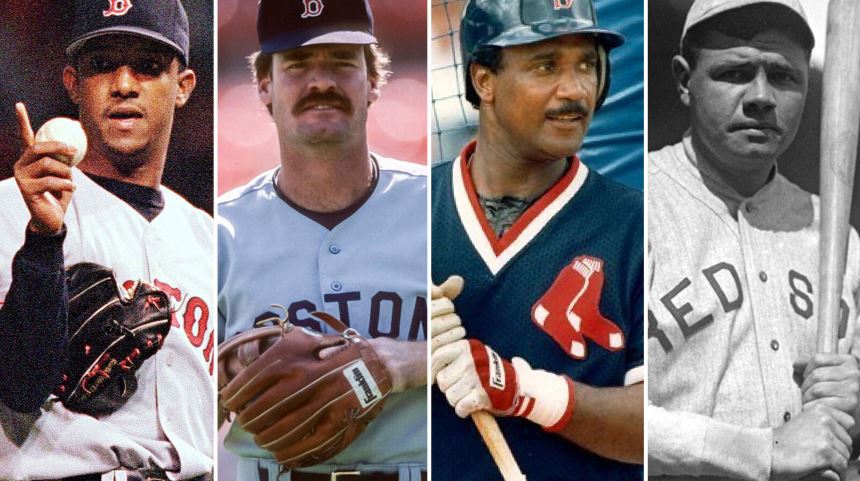
Legendary Boston Red Sox Hall of Famer Blasts Dodgers’ Shohei Ohtani
In the world of Major League Baseball, few names resonate as powerfully as Shohei Ohtani. The Los Angeles Dodgers’ star is captivating fans and critics alike with his ambitious pursuit of an unprecedented 50-50 season — a feat that would see him hit 50 home runs and steal 50 bases in the same year. This kind of statistical juggernaut would undoubtedly etch his name into the annals of baseball history, a prospect that has not only stirred excitement but also ignited debates across the sport.
However, amidst the buzz and admiration surrounding Ohtani’s remarkable achievements, not everyone is rolling out the red carpet for the Japanese sensation. Legendary Boston Red Sox Hall of Famer David Ortiz recently stirred the pot with some pointed comments about the race for the National League’s Most Valuable Player (MVP) Award. Ortiz, renowned for his clutch performances and charisma during his own illustrious career, seems to have a bone to pick with the way Ohtani is being treated in the MVP conversation.
In a candid interview that has since sparked significant discussion, Ortiz voiced his frustration with what he perceives as an uneven playing field. “They [MLB] always had… ‘issues’ not to give me the MVP because I was a designated hitter,” Ortiz said, referencing his own past struggles in the MVP race. Ortiz’s comments reveal a lingering bitterness about his own experiences with the MVP voting process. Despite his pivotal role in leading the Red Sox to multiple championships and his undeniable impact on the game, Ortiz often felt overshadowed in MVP discussions due to his role as a designated hitter — a position that traditionally lacks the same level of recognition as those involving both offense and defense.
Ortiz’s frustration is palpable as he shifts focus to the present, where Shohei Ohtani’s name is frequently mentioned as a frontrunner for the MVP Award. Ohtani’s unique dual-threat capabilities — excelling as both a pitcher and a hitter — have undoubtedly made him a marquee player. However, Ortiz seems to be questioning the fairness of the accolades being heaped upon Ohtani, particularly in light of his own experiences and observations about the voting process.
“I’m going to see what they’re going to say this year when Ohtani, the ‘pretty girl’ of MLB, is in the race,” Ortiz remarked, using a term that conveys his sense of Ohtani being the current darling of the league. This statement reflects Ortiz’s belief that Ohtani’s status as a media favorite might unfairly influence his chances of winning the MVP, a notion that seems to trouble Ortiz deeply.
According to Ortiz, the focus on Ohtani’s pursuit of a 50-50 season is overshadowing other deserving candidates. The Hall of Famer specifically called out Francisco Lindor, the New York Mets shortstop, as a player who is being unfairly overlooked in the MVP race. “Every day they are encouraging Ohtani to reach 50-50, while players like Francisco Lindor are being held back,” Ortiz argued, suggesting that the spotlight on Ohtani might be coming at the expense of recognizing other exceptional performances.
Ortiz’s comments are not just a critique of the MVP race but also a broader commentary on the way baseball’s awards and recognition are distributed. The notion of a “pretty girl” effect implies that Ohtani’s high profile and sensational achievements are drawing more attention than they perhaps deserve. For Ortiz, who has experienced firsthand the challenges of being evaluated fairly in a league where traditional roles and expectations can impact perceptions, the current situation seems like a replay of his own frustrations.
The debate surrounding MVP voting is not new. Throughout the history of baseball, there have been numerous instances where players felt that their contributions were not fully appreciated or that their achievements were overshadowed by other narratives. Ortiz’s comments tap into this ongoing conversation, highlighting the tensions that can arise when exceptional talent is evaluated against a backdrop of media narratives and public perception.
Shohei Ohtani’s pursuit of a 50-50 season is undeniably extraordinary. His ability to excel as both a hitter and a pitcher is a rarity in modern baseball, and his achievements have garnered widespread admiration. The Dodgers’ star has become a symbol of baseball’s evolving landscape, where traditional roles are being redefined and new standards of excellence are being set. However, this level of scrutiny and admiration also brings its own set of challenges, including the intense pressure to meet expectations and the potential for criticism when those expectations are not met.
For Francisco Lindor, Ortiz’s comments shine a spotlight on a player who has also been delivering outstanding performances. Lindor’s contributions to the Mets have been significant, and his impact on the field deserves recognition. Ortiz’s advocacy for Lindor highlights the importance of considering all facets of a player’s performance and ensuring that deserving candidates are not overlooked in favor of high-profile stories.
The MVP race is often a complex and nuanced discussion, with many factors influencing the final outcome. Performance metrics, team success, and individual narratives all play a role in shaping voters’ opinions. Ortiz’s perspective adds a layer of insight into the broader context of MVP voting and the challenges faced by players who may not fit the traditional mold but still make significant contributions to their teams.
As the season progresses and the MVP race continues to heat up, the debates and discussions surrounding these issues are likely to intensify. Ortiz’s comments have already sparked a lively conversation about fairness, recognition, and the evolving nature of baseball. Whether or not Ohtani ultimately wins the MVP Award, his impact on the game is undeniable, and his pursuit of historic achievements will be remembered as a defining chapter in baseball history.
In the end, Ortiz’s remarks serve as a reminder of the passion and intensity that drive discussions about baseball’s greatest honors. The sport is rich with history and tradition, but it is also constantly evolving. The conversations about MVP voting, player recognition, and the influence of media narratives are part of what makes baseball such a compelling and dynamic game. As fans and analysts continue to debate the merits of different candidates, one thing is certain: the pursuit of greatness in baseball is always a story worth following.


Leave a Reply